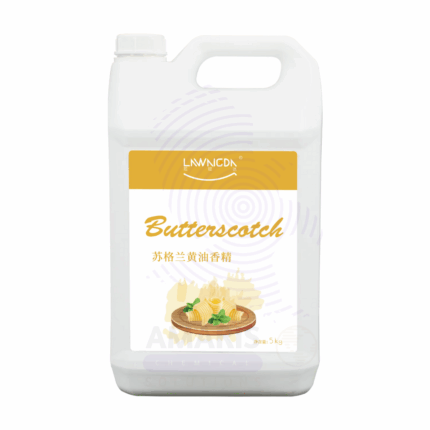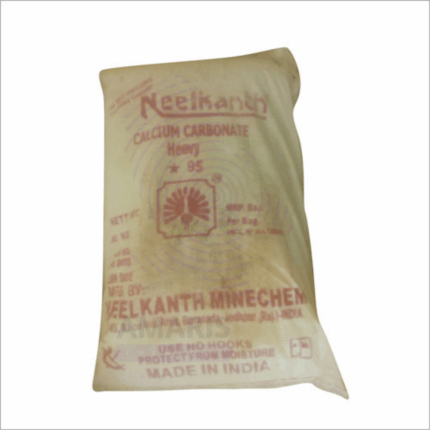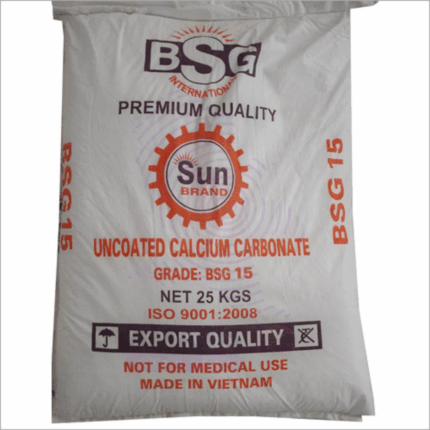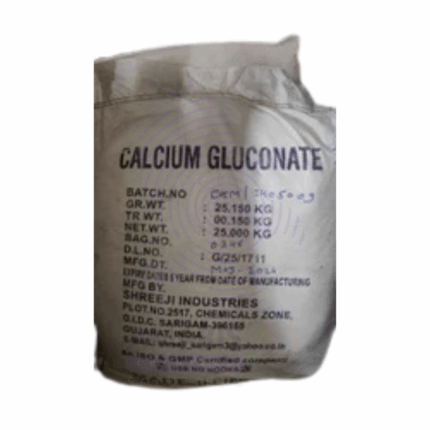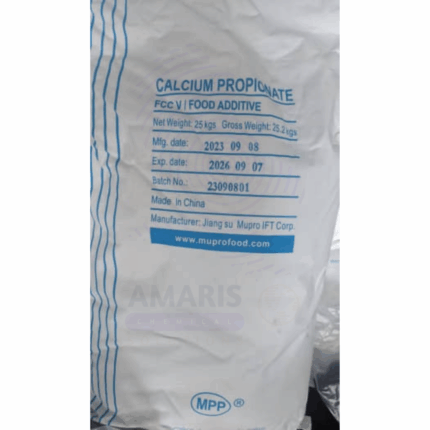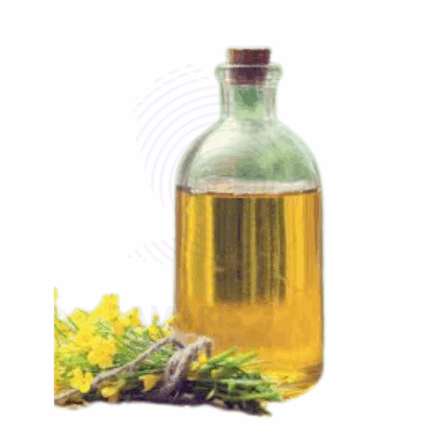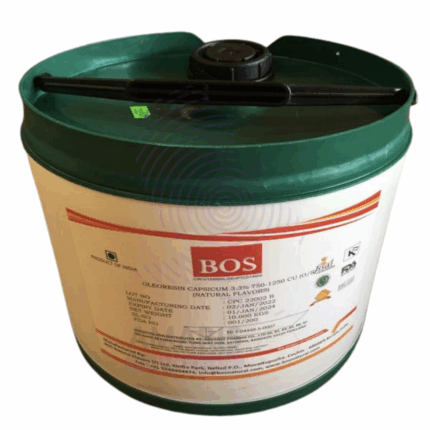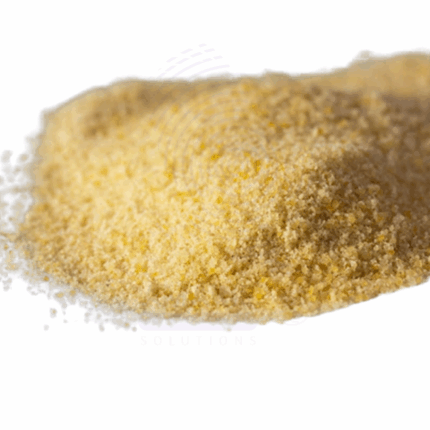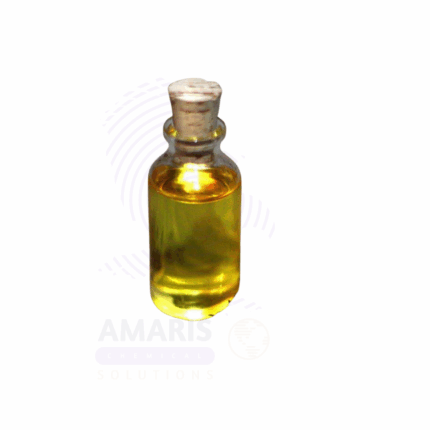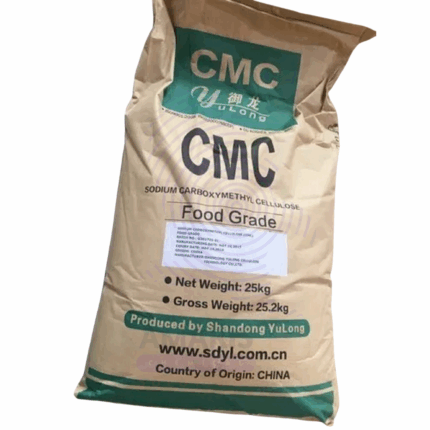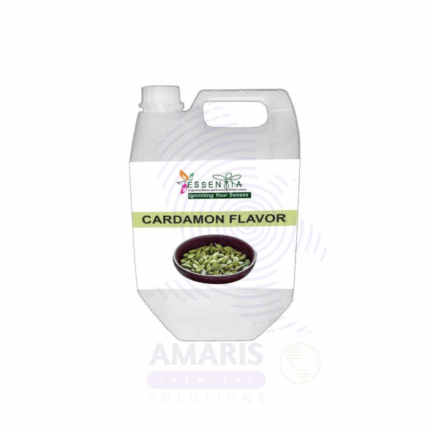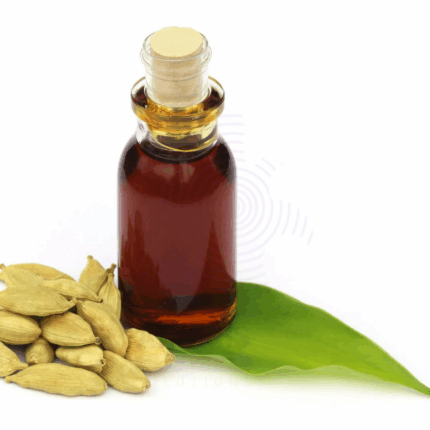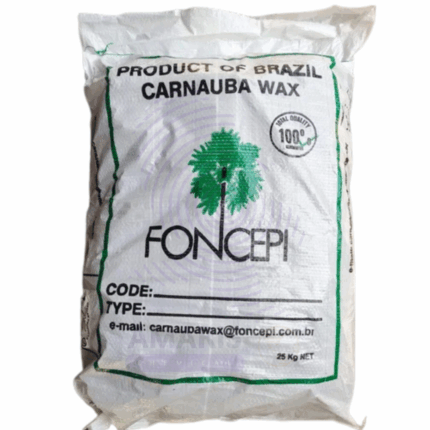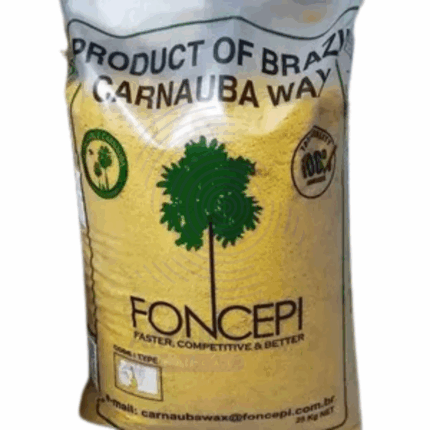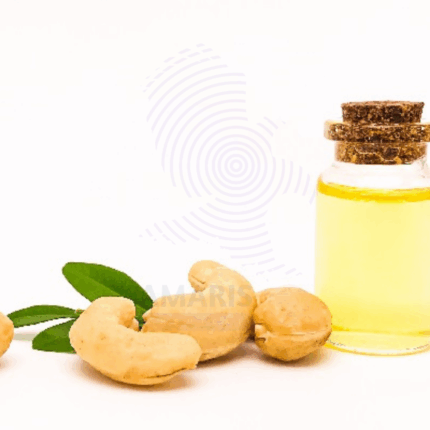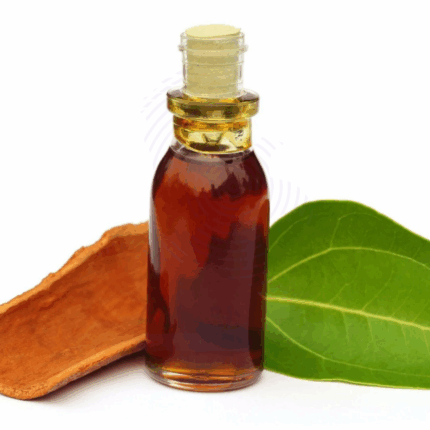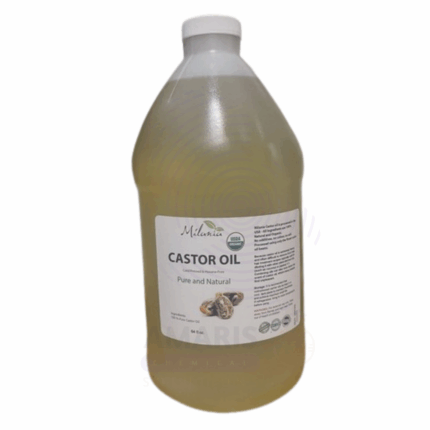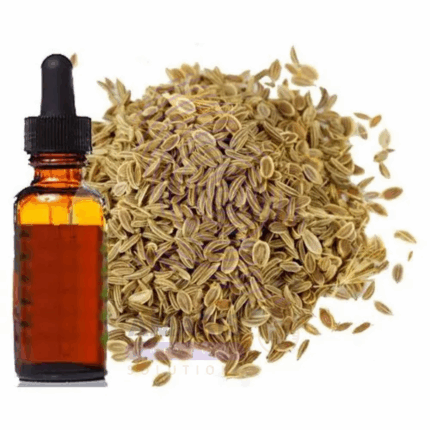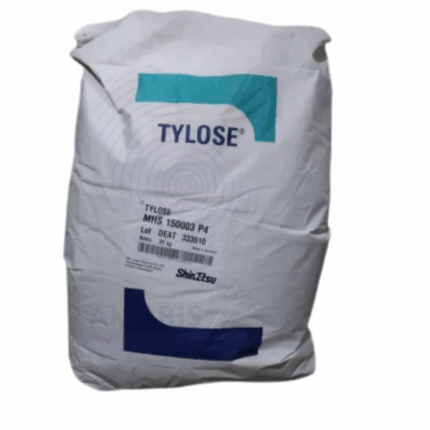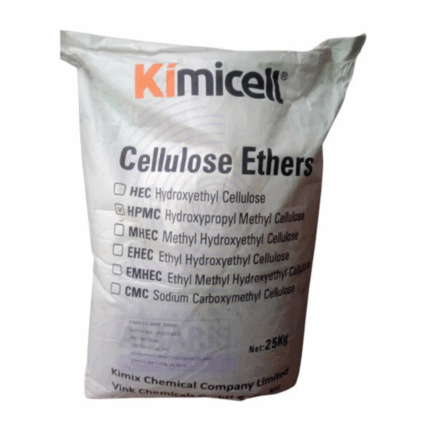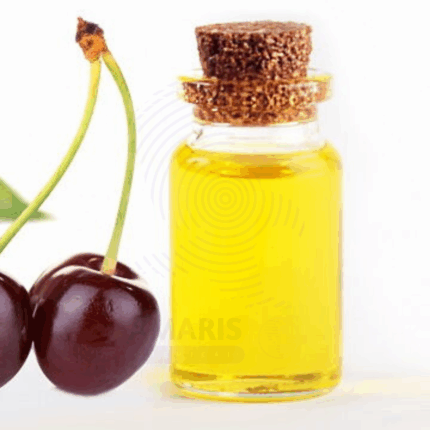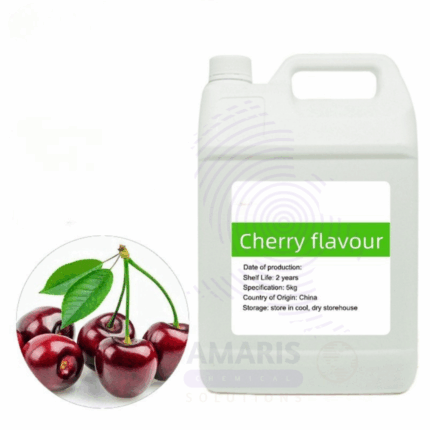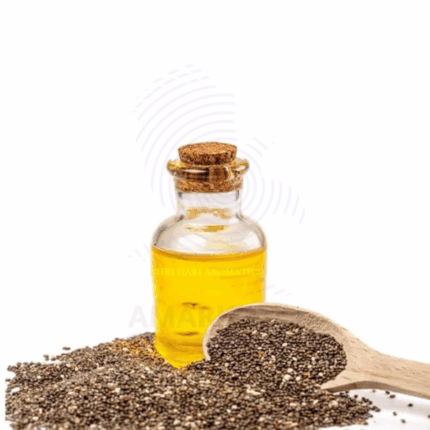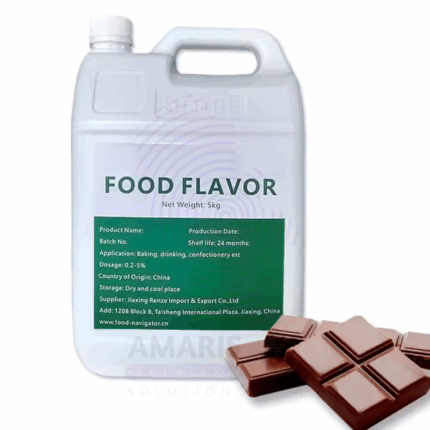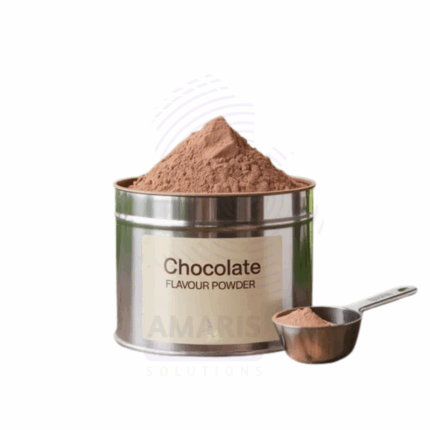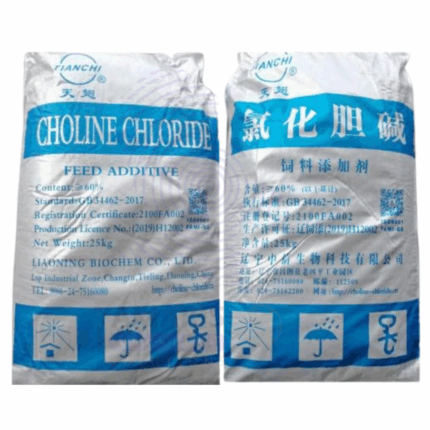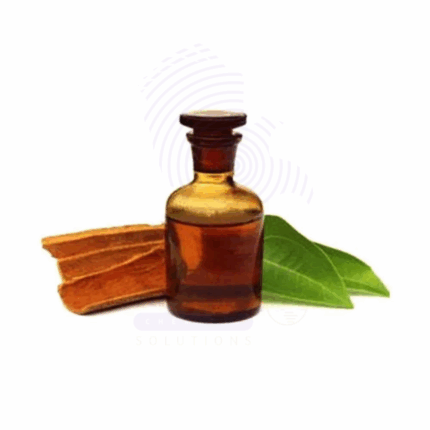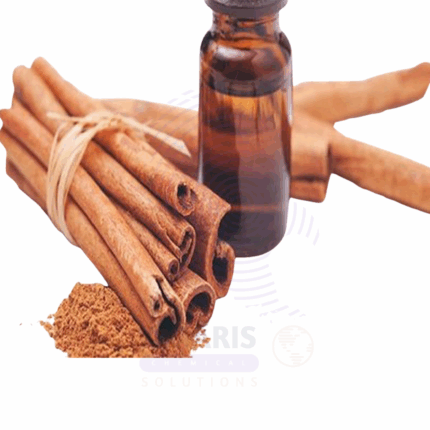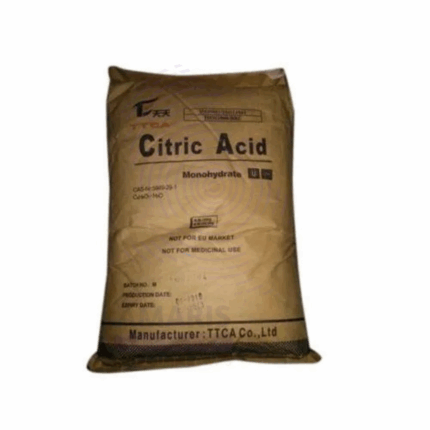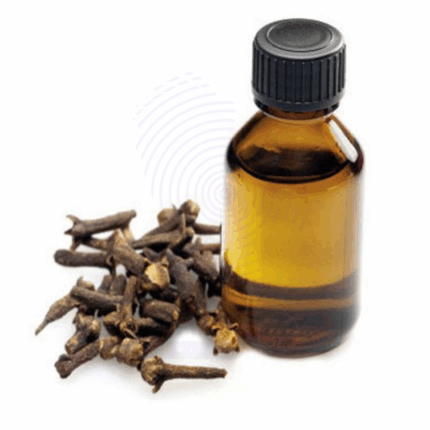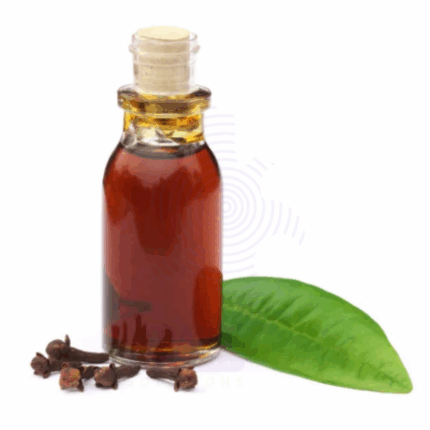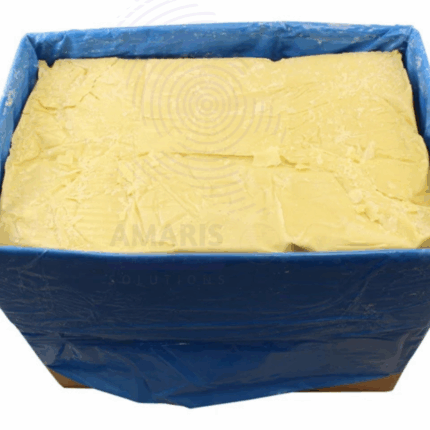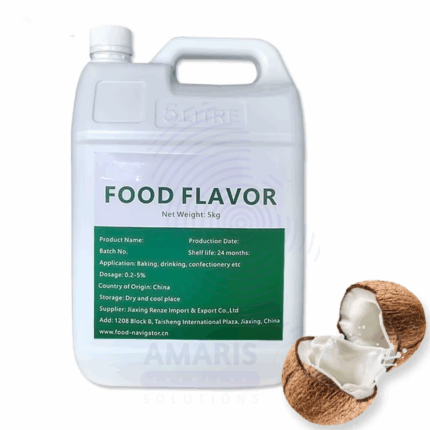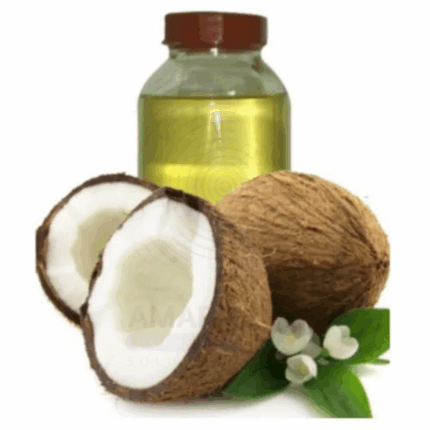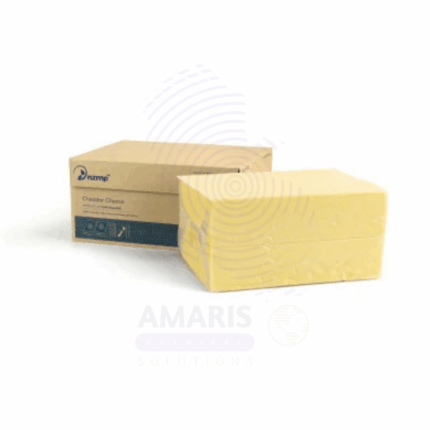Butterscotch Liquid Flavor Food Grade
Butterscotch Liquid Flavor Food Grade is a premium food-grade flavor designed to deliver the rich, buttery, caramelized sweetness characteristic of classic butterscotch. This liquid flavor offers a smooth and creamy aroma with hints of toasted brown sugar and vanilla, making it ideal for a wide range of food and beverage applications. It exhibits excellent stability and blending properties, ensuring consistent flavor performance in various formulations such as bakery, confectionery, dairy, and beverages.
Calcium Carbonate Heavy
Calcium Carbonate Heavy is a high-density, finely ground, natural mineral primarily composed of calcium carbonate (CaCO₃). Known for its higher bulk density compared to regular grades, this filler is widely used in applications requiring enhanced weight, opacity, and strength. It is commonly employed as a functional filler and extender in industries such as plastics, paints, coatings, adhesives, rubber, paper, and construction materials. Its inert nature, whiteness, and particle size distribution make it suitable for improving mechanical properties and surface finish, while also offering cost efficiency by replacing more expensive raw materials.
Calcium Carbonate Uncoated
Calcium Carbonate Uncoated is a naturally occurring mineral compound composed primarily of calcium, carbon, and oxygen with the chemical formula CaCO₃. It appears as a fine white powder or granules, widely used as a filler, pigment, and functional additive across various industries. The uncoated form means the calcium carbonate particles are not surface-treated, retaining their natural properties. It is valued for its high brightness, whiteness, and excellent compressibility. Uncoated calcium carbonate is used to enhance opacity, improve processing, and reduce costs in plastics, paints, coatings, adhesives, rubber, paper, and construction materials.
Calcium D-Panthothenate
Calcium D-Panthothenate is the calcium salt of D-pantothenic acid (vitamin B5), appearing as a white or off-white crystalline powder. It is a stable, water-soluble compound widely used as a dietary supplement and pharmaceutical ingredient to supply vitamin B5, essential for coenzyme A synthesis and normal metabolism of carbohydrates, proteins, and fats. Calcium D-Panthothenate supports adrenal function, wound healing, and nervous system health, and is frequently incorporated into multivitamins, nutritional supplements, fortified foods, and topical formulations.
Calcium Gluconate
Calcium Gluconate is a calcium salt of gluconic acid appearing as a white, odorless, crystalline powder or colorless crystals. It is highly soluble in water and commonly used as a calcium supplement in pharmaceuticals and food products. Calcium Gluconate plays a critical role in medicine for treating calcium deficiencies, hypocalcemia, and as an antidote for hydrofluoric acid burns. Its excellent bioavailability makes it a preferred calcium source in oral and intravenous formulations. Additionally, it is utilized in food fortification and cosmetic applications due to its safety and compatibility.
Calcium Lactate Pentahydrate
Calcium Lactate Pentahydrate is a white, crystalline, odorless powder that is the calcium salt of lactic acid with five molecules of water of crystallization. It is moderately soluble in water and has a slightly alkaline pH in solution. Widely used as a calcium supplement in the pharmaceutical and food industries, it is known for its good bioavailability and safety profile. Calcium Lactate Pentahydrate is utilized to prevent and treat calcium deficiencies and plays a role in bone health, muscle function, and enzyme activity. It also finds applications as a food additive and firming agent.
Calcium Propionate
Calcium Propionate is the calcium salt of propionic acid, appearing as a white, crystalline powder or granules with a slightly salty taste and low odor. It is highly soluble in water and used primarily as a food preservative and mold inhibitor. Calcium Propionate inhibits the growth of mold, bacteria, and fungi, making it especially valuable in baked goods, dairy products, and animal feed to extend shelf life and prevent spoilage. It also finds application in pharmaceuticals and cosmetics as a preservative and antimicrobial agent.
Calcium Saccharin
Calcium Saccharin is the calcium salt form of saccharin, a synthetic sweetener. It appears as a white to off-white crystalline powder with a sweet taste that is several hundred times sweeter than sucrose (table sugar). Calcium Saccharin is water-soluble and widely used as a non-nutritive sweetener in food and beverage products, pharmaceuticals, and oral care formulations. Due to its stability under heat and acidic conditions, it is ideal for baked goods and beverages. It serves as a sugar substitute for diabetic and calorie-restricted diets and is often used in combination with other sweeteners to improve taste profiles.
Camelina
Camelina (Camelina sativa), also known as false flax or gold-of-pleasure, is an ancient oilseed crop belonging to the Brassicaceae family. It produces small, golden-brown seeds that are rich in oil content, typically around 30-40%. The oil extracted from Camelina seeds is prized for its high content of omega-3 fatty acids, antioxidants, and bioactive compounds, making it valuable in food, feed, cosmetic, and industrial applications. Camelina oil has a mild, nutty flavor and a favorable fatty acid profile including linolenic acid, making it a sustainable alternative to traditional vegetable oils. The crop is noted for its short growing season, low input requirements, and adaptability to marginal soils and climates.
Candelilla Wax
Candelilla Wax is a natural vegetable wax derived from the leaves of the Euphorbia cerifera shrub, native to northern Mexico and the southwestern United States. It appears as a hard, brittle, light yellow to brown wax with a mild, characteristic odor. This wax is valued for its high melting point, gloss-enhancing properties, and excellent binding capabilities. It is widely used in cosmetics, pharmaceuticals, food, and industrial applications as a vegan alternative to beeswax. Its film-forming, emollient, and stabilizing attributes make it a multifunctional ingredient across several industries.
Canola Oil
Canola Oil is a light, non-greasy vegetable oil extracted from the seeds of the Canola plant (Brassica napus, Brassica rapa), a cultivar of rapeseed developed for its low erucic acid content. Rich in monounsaturated fats, omega-3 and omega-6 fatty acids, and vitamin E, it is known for its heart-healthy profile and neutral flavor.
Widely used in the food, cosmetic, pharmaceutical, and industrial sectors, Canola Oil serves as a versatile base oil for cooking, skincare formulations, softgel encapsulation, and biodiesel production. Its high smoke point and oxidative stability make it ideal for both cold and high-temperature applications.
Capsicum Oleoresin
Capsicum Oleoresin is a concentrated extract derived from the dried fruits of Capsicum annuum or Capsicum frutescens (chili peppers). It is a dark red to brownish oily liquid containing approximately 8% capsaicinoids—primarily capsaicin and dihydrocapsaicin—which are the primary pungent components. This oleoresin is widely used for its flavoring, coloring, medicinal, and irritant properties in the food, pharmaceutical, veterinary, and defense industries. It is produced by solvent extraction followed by standardization to achieve consistent pungency levels. The product is highly potent and must be handled with care due to its intense irritant nature.
Caramel Powder Flavor
Caramel Powder Flavor is a highly concentrated powdered flavoring agent designed to impart the rich, sweet, and buttery aroma and taste of caramel to a wide range of products. Produced through controlled caramelization of sugars and natural extracts, this flavor powder delivers authentic caramel notes without artificial additives. Its fine powder form ensures easy blending, precise dosing, and extended shelf life. Commonly used in food and beverage manufacturing, it enhances sensory appeal in bakery products, confectionery, dairy items, and beverages. Its versatility also makes it suitable for flavoring applications in personal care and cleaning products.
Caramel Powder Flavor
Caramel Powder Flavor is a highly concentrated powdered flavoring agent designed to impart the rich, sweet, and buttery aroma and taste of caramel to a wide range of products. Produced through controlled caramelization of sugars and natural extracts, this flavor powder delivers authentic caramel notes without artificial additives. Its fine powder form ensures easy blending, precise dosing, and extended shelf life. Commonly used in food and beverage manufacturing, it enhances sensory appeal in bakery products, confectionery, dairy items, and beverages. Its versatility also makes it suitable for flavoring applications in personal care and cleaning products.
Caraway Oil
Caraway Oil is a volatile essential oil steam-distilled from the dried seeds of the Caraway plant (Carum carvi), a member of the Apiaceae family. It has a spicy, sweet, herbaceous aroma with warm undertones and is pale yellow to colorless in appearance. Known for its long-standing use in traditional herbal medicine and culinary flavoring, Caraway Oil contains carvone and limonene as its major constituents, responsible for its distinct aroma and therapeutic effects.
This oil is widely used in aromatherapy, digestive remedies, cosmetics, and pharmaceutical formulations. It is also valued in flavor manufacturing and oral care products for its carminative and antimicrobial properties.
Carboxymethyl Cellulose Food Grade
Carboxymethyl Cellulose Food Grade is a water-soluble cellulose derivative produced by the etherification of cellulose with monochloroacetic acid. It appears as a fine, white to off-white powder with excellent thickening, stabilizing, and water retention properties. Designed specifically for food applications, this grade complies with food safety regulations and is widely used as a texture modifier, stabilizer, and emulsifier in a variety of processed foods. It enhances product consistency, extends shelf life, and improves moisture retention without altering taste or odor. Being non-toxic, biodegradable, and non-caloric, it is considered safe for human consumption and is approved as a food additive in many countries.
Cardamom Liquid Flavor Food Grade
Cardamom Liquid Flavor Food Grade is a high-quality food-grade flavor extract that captures the warm, aromatic, and slightly spicy essence of natural cardamom pods. Known for its unique fragrance and distinct sweet-spicy taste, this liquid flavor is ideal for enhancing the sensory profile of a variety of culinary and beverage products. It offers excellent stability and solubility, making it suitable for use in bakery, confectionery, beverages, dairy, and savory applications.
Cardamon liquid flavor
Cardamom Liquid Flavor is a high-quality food-grade flavor extract that captures the warm, aromatic, and slightly spicy essence of natural cardamom pods. Known for its unique fragrance and distinct sweet-spicy taste, this liquid flavor is ideal for enhancing the sensory profile of a variety of culinary and beverage products. It offers excellent stability and solubility, making it suitable for use in bakery, confectionery, beverages, dairy, and savory applications.
Cardamon Oil
Cardamon Oil is a premium essential oil steam-distilled from the seeds of Elettaria cardamomum, a plant native to India and Sri Lanka and widely cultivated across tropical regions. It carries a warm, spicy-sweet aroma with hints of eucalyptus and citrus, and ranges from colorless to pale yellow in appearance. Known for its digestive, antiseptic, expectorant, and uplifting qualities, it is valued in aromatherapy, perfumery, cosmetics, pharmaceuticals, and food applications.
Rich in compounds like cineole (1,8-cineole), α-terpineol, and linalyl acetate, Cardamom Oil provides both flavor and therapeutic effects, making it a versatile ingredient across several industries.
Carnauba Wax
Carnauba Wax is a natural vegetable wax obtained from the leaves of the Copernicia prunifera palm tree, native to northeastern Brazil. It appears as a hard, brittle, yellow to brownish-yellow wax with a faint, characteristic odor. Known as the “queen of waxes,” Carnauba Wax is prized for its exceptionally high melting point, glossy finish, and excellent hardness. It is a premium wax widely used in cosmetics, food, pharmaceuticals, automotive, and industrial applications as a natural, biodegradable alternative to synthetic waxes. Its film-forming, emulsifying, and protective properties make it highly versatile for use in coatings, polishes, and skincare products.
Carnauba Wax Prime Yellow
Carnauba Wax Prime Yellow is a premium grade of natural vegetable wax derived from the leaves of the Copernicia prunifera palm tree, predominantly found in northeastern Brazil. This wax is characterized by its bright yellow color and superior purity, making it highly valued in high-end applications. It features a hard, brittle texture with a high melting point (82–86°C) and a mild, characteristic odor. Carnauba Wax Prime Yellow offers excellent gloss, durability, and water resistance. Its natural origin, combined with exceptional film-forming and emulsifying properties, makes it a preferred choice in cosmetics, food glazing, pharmaceuticals, automotive waxes, and industrial coatings where quality and performance are paramount.
Cashew Nut Oil
Cashew Nut Oil is a light, golden to pale yellow oil extracted from the kernels of the cashew tree (Anacardium occidentale), native to tropical regions such as Brazil, India, and parts of Africa. The oil is obtained through cold-pressing or solvent extraction methods and is known for its emollient, antioxidant, and skin-conditioning properties.
Rich in oleic, linoleic, and palmitic acids, as well as vitamin E, phytosterols, and phenolic compounds, Cashew Nut Oil is used extensively in cosmetic and personal care applications, as well as in certain food and pharmaceutical formulations. Its light texture and high skin compatibility make it ideal for dry and sensitive skin, while its nutritive properties contribute to hair and scalp health.
Cassia Oil
Cassia Oil is a potent essential oil steam-distilled from the bark of Cinnamomum cassia, commonly known as Chinese cinnamon. It carries a strong, spicy, and warm aroma similar to true cinnamon but is more pungent and intense. Its reddish-brown to yellow appearance and high cinnamaldehyde content give it powerful antimicrobial, antifungal, and warming properties. Cassia Oil is used across various industries including food flavoring, pharmaceuticals, cosmetics, aromatherapy, and household products. Due to its strength, it is typically used in diluted concentrations.
Castor Oil Food Grade
Castor Oil Food Grade is a pale yellow, viscous vegetable oil derived by cold pressing the seeds of the Ricinus communis plant. Known for its high content of ricinoleic acid, it has a mild flavor and is widely used in the food, pharmaceutical, and nutraceutical industries. As a food-grade oil, it is purified to meet strict quality and safety standards. It serves both as a laxative agent and a food additive, often used in flavor carriers, coatings, and processing aids. The oil’s high stability and low moisture content also make it suitable for specialty industrial applications in food-safe environments.
Celery Seed Oil
Celery Seed Oil is a concentrated essential oil obtained by steam distillation from the dried seeds of the Apium graveolens plant. It features a warm, spicy, earthy aroma with slightly bitter undertones and is rich in compounds like limonene, sedanolide, and selinene. Traditionally used in natural medicine for its anti-inflammatory, digestive, and diuretic properties, Celery Seed Oil is also increasingly recognized in cosmetic, aromatherapy, and flavoring applications. It is distinct from celery leaf oil, carrying a denser, more resinous aromatic profile and a stronger pharmacological potency.
Cellozize Tylose
Cellozize Tylose, commonly known by the trade name Tylose, is a brand of hydroxyethyl cellulose (HEC), a non-ionic, water-soluble cellulose ether derived from natural cellulose. It appears as a white to off-white powder with excellent thickening, binding, and film-forming properties. Tylose is widely used as a rheology modifier, stabilizer, and thickener in various industries including construction, pharmaceuticals, cosmetics, and food. It provides viscosity control, improves texture, and enhances water retention in formulations. Due to its inert, non-toxic, and biodegradable nature, Tylose is favored as a versatile polymer in many applications.
Cellulose Ether
Cellulose ether refers to a group of chemically modified cellulose derivatives where hydroxyl groups on the cellulose backbone are substituted with ether groups such as methyl, hydroxyethyl, or carboxymethyl groups. These modifications improve solubility, viscosity, and film-forming properties while maintaining biodegradability and non-toxicity. Cellulose ethers are white to off-white powders or granules that dissolve in water to form viscous, stable solutions. They are widely used as thickeners, binders, stabilizers, and film formers in industries such as construction, pharmaceuticals, cosmetics, food, and paper.
Chamomile Oil
Chamomile Oil is a highly valued essential oil extracted from the flowers of the Matricaria chamomilla (German Chamomile) or Chamaemelum nobile (Roman Chamomile) through steam distillation or solvent extraction. Renowned for its calming, anti-inflammatory, and soothing properties, Chamomile Oil exhibits a sweet, fruity, herbaceous aroma with apple-like undertones. It is widely used in aromatherapy, cosmetics, pharmaceuticals, and natural wellness products. This oil supports skin health, reduces stress, and provides relief from various inflammatory conditions, making it a cornerstone in holistic health and beauty formulations.
Cherry Kernel Oil
Cherry Kernel Oil, extracted from the seeds of sweet cherries (Prunus avium), is a lightweight, golden-yellow carrier oil with a mild, nutty aroma. This oil is produced through cold pressing of cherry kernels and is rich in oleic and linoleic acids, along with naturally occurring tocopherols (Vitamin E) and phytosterols. Known for its excellent emollient, antioxidant, and regenerative properties, it absorbs quickly and nourishes the skin without leaving a greasy residue.
It is widely used in skin care, hair care, baby products, and aromatherapy. Its gentle nature makes it suitable for sensitive and mature skin, while its light texture and stability make it a favored base oil in cosmetic formulations, massage blends, and eco-conscious personal care lines.
Cherry Sweet Liquid Flavour Food Grade
Cherry Sweet Liquid Flavour Food Grade is a high-quality food-grade flavoring agent that delivers the bright, sweet, and fruity aroma characteristic of ripe cherries. Formulated for excellent solubility and stability, it is ideal for enhancing a wide range of food and beverage products. This liquid flavor provides a natural, rich cherry taste that improves the sensory experience in confectionery, beverages, bakery items, dairy products, and more.
Chia Oil
Chia Oil is a cold-pressed, nutrient-rich oil derived from the seeds of the Salvia hispanica plant, native to Central and South America. This light, fast-absorbing oil is celebrated for its exceptionally high content of omega-3 fatty acids (especially alpha-linolenic acid), antioxidants, vitamins, and phytonutrients. It has a mild, nutty aroma and is typically golden in color.
Due to its powerful antioxidant and anti-inflammatory properties, Chia Oil is used extensively in cosmetics, personal care, nutraceuticals, and food products. It helps support skin barrier function, reduce redness, and improve skin elasticity and hydration. In food and dietary supplements, it’s valued for its cardiovascular, brain, and skin health benefits.
Chocolate Liquid Flavour Food Grade
Chocolate Liquid Flavour Food Grade is a premium food-grade flavoring agent designed to impart a rich, smooth, and authentic chocolate aroma and taste to a wide variety of food and beverage products. This liquid flavor is formulated for excellent solubility and stability, making it ideal for confectionery, bakery, dairy, beverage, and dessert applications. It enhances the sensory appeal of products by delivering a consistent and natural chocolate flavor profile that consumers enjoy.
Chocolate Powder Flavor food grade
Product Description
Chocolate Powder Flavor is a high-quality food-grade powdered flavoring agent that delivers an authentic, rich, and creamy chocolate taste to various food and beverage products. This powdered flavor is specially formulated for excellent dispersibility and stability, making it suitable for bakery items, confectionery, dairy products, beverages, and desserts. It enhances flavor profiles by providing a consistent, smooth chocolate aroma and taste, elevating the sensory experience of finished goods.
Chocolate Powder Flavour Food Grade
Chocolate Powder Flavour Food Grade is a high-quality food-grade powdered flavoring agent that delivers an authentic, rich, and creamy chocolate taste to various food and beverage products. This powdered flavor is specially formulated for excellent dispersibility and stability, making it suitable for bakery items, confectionery, dairy products, beverages, and desserts. It enhances flavor profiles by providing a consistent, smooth chocolate aroma and taste, elevating the sensory experience of finished goods.
Choline Chloride Powder
Choline Chloride Powder is a white to off-white crystalline powder containing 60% choline chloride, a quaternary ammonium salt essential as a nutrient in animal and poultry feed. It serves as a vital source of choline, an important component in fat metabolism, liver function, and cell membrane integrity. Produced through chemical synthesis, this powder form is highly soluble in water, making it easy to incorporate into feed premixes and supplements. Choline chloride is widely used in the agriculture industry to prevent choline deficiency, enhance growth performance, and improve overall health in livestock. Beyond animal nutrition, it finds applications in chemical manufacturing and pharmaceuticals.
Cinnamon Leaf Oil
Cinnamon Leaf Oil is an essential oil obtained by steam distillation of the leaves of the Cinnamomum zeylanicum or Cinnamomum verum tree. It has a warm, spicy, and slightly sweet aroma, distinct from cinnamon bark oil, with high levels of eugenol. This oil is prized for its antimicrobial, antioxidant, and analgesic properties. It is widely used in perfumery, aromatherapy, personal care, and natural medicine.
Used traditionally for respiratory relief, oral health, and topical analgesia, cinnamon leaf oil is now integrated into natural formulations for skincare, oral hygiene, massage, and household cleaning products. Its invigorating scent and therapeutic versatility make it valuable across cosmetic, pharmaceutical, and cleaning industries.
Cinnamon Liquid Flavor food grade
Cinnamon Liquid Flavor is a premium food-grade flavoring agent that delivers the warm, spicy, and aromatic profile of natural cinnamon in a convenient liquid form. It is carefully formulated for excellent solubility and stability, making it ideal for use in a wide range of food and beverage applications. This flavor enhances products with its authentic cinnamon aroma and taste, suitable for bakery, confectionery, dairy, beverage, and savory dishes, providing a consistent and high-quality sensory experience.
Cinnamon Liquid Flavour Food Grade
Cinnamon Liquid Flavour Food Grade is a premium food-grade flavoring agent that delivers the warm, spicy, and aromatic profile of natural cinnamon in a convenient liquid form. It is carefully formulated for excellent solubility and stability, making it ideal for use in a wide range of food and beverage applications. This flavor enhances products with its authentic cinnamon aroma and taste, suitable for bakery, confectionery, dairy, beverage, and savory dishes, providing a consistent and high-quality sensory experience.
Citric Acid Anhydrous
Citric Acid Anhydrous is a white, crystalline organic acid widely used across food, pharmaceutical, cosmetic, and industrial sectors. It is the anhydrous form of citric acid, meaning it contains no water molecules in its crystal lattice, resulting in higher purity and more concentrated acidic properties compared to its monohydrate form. Derived from natural sources like citrus fruits or produced via microbial fermentation, citric acid anhydrous is valued for its sour taste, excellent chelating ability, and buffering capacity. It serves as a natural preservative, pH adjuster, antioxidant synergist, and cleaning agent, making it a versatile ingredient in many formulations.
Citric Acid Monohydrate
Citric Acid Monohydrate is a white, crystalline powder or granule form of citric acid containing one molecule of water per molecule of acid. It is a natural organic acid commonly derived from citrus fruits or produced by fermentation processes. Citric Acid Monohydrate is widely used as an acidulant, preservative, and chelating agent in various industries. Compared to the anhydrous form, it has a slightly lower acid concentration due to the water molecule but offers excellent solubility and stability. It is prized for its sour flavor, buffering capacity, and ability to bind metal ions, making it indispensable in food, pharmaceutical, cosmetic, and industrial applications.
Clove Bud Oil
Clove Bud Oil is a potent essential oil obtained through steam distillation of the flower buds of the Syzygium aromaticum (formerly Eugenia caryophyllata) tree. Renowned for its strong, spicy, and warm aroma, it is rich in eugenol — a powerful natural compound with significant antiseptic, analgesic, and antimicrobial properties.
Used historically in dental care, traditional medicine, and perfumery, Clove Bud Oil is now widely applied in cosmetics, oral care, food flavoring, wellness, and natural cleaning products. It is also valued in aromatherapy for its grounding and energizing effects.
Clove Leaf Oil
Clove Leaf Oil is a high-phenol essential oil extracted via steam distillation from the leaves of Syzygium aromaticum (formerly Eugenia caryophyllata). It typically contains up to 80–85% eugenol, which gives it a sharper, more herbaceous aroma than clove bud oil. This oil is prized for its potent antiseptic, analgesic, antifungal, and antioxidant properties. Used in oral care, topical formulations, fragrances, cleaning agents, and agricultural applications, it is valued for both its therapeutic efficacy and aromatic profile.
CMC Sodium (Carboxymethyl Cellulose Sodium)
CMC Sodium, or Carboxymethyl Cellulose Sodium, is a water-soluble anionic cellulose ether derived from natural cellulose. It appears as a white to off-white, odorless, tasteless powder or granule. Known for its excellent thickening, stabilizing, emulsifying, and water-retention properties, CMC is widely used in food, pharmaceutical, personal care, industrial, and detergent applications. It functions by modifying the rheological properties of solutions and suspensions, offering control over viscosity and flow. Its biocompatibility, non-toxicity, and biodegradability make it suitable for both human use and environmentally friendly formulations.
CMC Sodium Blanose
CMC Sodium Blanose is a high-purity, pharmaceutical- and food-grade Sodium Carboxymethyl Cellulose (CMC), manufactured under the Blanose® brand by Ashland or equivalent producers. It is a water-soluble, anionic cellulose ether derived from natural cellulose, designed for superior consistency, clarity, and performance. CMC Blanose serves as a thickening agent, stabilizer, binder, film former, and emulsifier in a wide variety of applications. Known for its excellent rheological control and water retention, it is widely used across the food, pharmaceutical, personal care, and industrial sectors, offering reliable performance with batch-to-batch consistency.
Cocoa Butter
Cocoa Butter, also known as Theobroma oil, is a pale-yellow, edible fat extracted from cocoa beans, primarily from Theobroma cacao. It has a smooth, creamy texture and a mild, characteristic chocolate aroma. Cocoa Butter is solid at room temperature but melts near body temperature, which gives it a luxurious feel when applied to skin or consumed. It is highly valued for its emollient, moisturizing, and protective properties. Cocoa Butter is widely used in cosmetics, pharmaceuticals, food, and confectionery industries. Its stable composition rich in fatty acids such as stearic, palmitic, and oleic acids imparts excellent oxidative stability and a long shelf life.
Coconut Liquid Flavour Food Grade
Coconut Liquid Flavour Food Grade is a premium food-grade flavoring agent that delivers the sweet, creamy, and tropical aroma and taste of natural coconut in a convenient liquid form. It is specially formulated to provide consistent flavor and excellent stability in a variety of food and beverage applications. This flavor enhances bakery, confectionery, dairy, beverages, and savory products with its authentic coconut profile, making it ideal for creating delicious and exotic culinary experiences.
Coconut Oil Refined
Coconut Oil Refined is a purified oil extracted from dried coconut meat (copra) that undergoes refining, bleaching, and deodorizing (RBD) to remove impurities, odor, and flavor. The resulting oil is clear, colorless to pale yellow, with a neutral scent and a high smoke point, making it suitable for diverse applications. It is rich in medium-chain triglycerides (MCTs) that offer moisturizing, antimicrobial, and emollient properties. Refined Coconut Oil is widely used in cosmetic formulations, pharmaceutical excipients, food products, and cleaning agents for its versatility, stability, and skin-friendly characteristics.
Coffee Butter
Coffee Butter is a natural, plant-derived fat extracted primarily from the coffee seed pulp or coffee cherry, sometimes from the coffee bean itself. It is a creamy, pale yellow to light brown solid at room temperature with a mild coffee aroma. Coffee Butter is rich in fatty acids, antioxidants, and vitamins, making it a valuable ingredient in cosmetics, skincare, and specialty food products. Known for its emollient, moisturizing, and antioxidant properties, Coffee Butter helps to nourish and protect the skin while providing a pleasant sensory experience. It is gaining popularity as a sustainable by-product of coffee processing, contributing to zero-waste initiatives.
Coffee Oil
Coffee Oil is a natural oil extracted from roasted or green coffee beans (Coffea arabica or Coffea canephora) through cold pressing or solvent extraction. It possesses a rich, warm, roasted coffee aroma and is packed with beneficial compounds including caffeine, diterpenes, and antioxidant-rich fatty acids. Due to its emollient and antioxidant properties, it is widely used in cosmetic, aromatherapy, food, and fragrance applications.
Coffee Oil is known to help stimulate circulation, reduce inflammation, and provide anti-aging support in skincare. Its energizing scent also makes it popular in perfumes and wellness blends. Food-grade versions are used to enhance flavors in gourmet and specialty food products.


 Acidulants
Acidulants Antioxidants
Antioxidants Nutraceutical Ingredients (food)
Nutraceutical Ingredients (food)
 Collectors
Collectors Dust Suppressants
Dust Suppressants Explosives and Blasting Agents
Explosives and Blasting Agents Flocculants and Coagulants
Flocculants and Coagulants Frothers
Frothers Leaching Agents
Leaching Agents pH Modifiers
pH Modifiers Precious Metal Extraction Agents
Precious Metal Extraction Agents
 Antioxidants(plastic)
Antioxidants(plastic) Colorants (Pigments, Dyes)
Colorants (Pigments, Dyes) Fillers and Reinforcements
Fillers and Reinforcements Flame Retardants
Flame Retardants Monomers
Monomers Plasticizers
Plasticizers Polymerization Initiators
Polymerization Initiators Stabilizers (UV, Heat)
Stabilizers (UV, Heat)
 Antifoaming Agents
Antifoaming Agents Chelating Agents
Chelating Agents Coagulants and Flocculants
Coagulants and Flocculants Corrosion Inhibitors
Corrosion Inhibitors Disinfectants and Biocides
Disinfectants and Biocides Oxidizing Agents
Oxidizing Agents pH Adjusters
pH Adjusters Scale Inhibitors( water)
Scale Inhibitors( water)
 Antioxidants(cosmetic)
Antioxidants(cosmetic) Emollients
Emollients Fragrances and Essential Oils
Fragrances and Essential Oils Humectants
Humectants Preservatives
Preservatives Surfactants(cosmetic)
Surfactants(cosmetic) Thickeners
Thickeners UV Filters
UV Filters
 Fertilizers
Fertilizers Soil Conditioners
Soil Conditioners Plant Growth Regulators
Plant Growth Regulators Animal Feed Additives
Animal Feed Additives Biostimulants
Biostimulants Pesticides (Herbicides, Insecticides, Fungicides)
Pesticides (Herbicides, Insecticides, Fungicides)
 Active Pharmaceutical Ingredients (APIs)
Active Pharmaceutical Ingredients (APIs) Excipients
Excipients Solvents(pharmaceutical)
Solvents(pharmaceutical) Antibiotics
Antibiotics Antiseptics and Disinfectants
Antiseptics and Disinfectants Vaccine Adjuvants
Vaccine Adjuvants Nutraceutical Ingredients (pharmaceutical)
Nutraceutical Ingredients (pharmaceutical) Analgesics & Antipyretics
Analgesics & Antipyretics
 Analytical Reagents
Analytical Reagents Chromatography Chemicals
Chromatography Chemicals Spectroscopy Reagents
Spectroscopy Reagents Molecular Biology Reagents
Molecular Biology Reagents Biochemical Reagents
Biochemical Reagents Inorganic and Organic Standards
Inorganic and Organic Standards Laboratory Safety Chemicals
Laboratory Safety Chemicals Specialty Laboratory Chemicals(Special Laboratory Equipment)
Specialty Laboratory Chemicals(Special Laboratory Equipment)
 Demulsifiers
Demulsifiers Hydraulic Fracturing Fluids
Hydraulic Fracturing Fluids Scale Inhibitors(oil)
Scale Inhibitors(oil) Surfactants(oil)
Surfactants(oil) Drilling Fluids
Drilling Fluids
 Dyes and Pigments
Dyes and Pigments Bleaching Agents
Bleaching Agents Softening Agents
Softening Agents Finishing Agents
Finishing Agents Antistatic Agents
Antistatic Agents
 Admixtures
Admixtures Waterproofing Agents
Waterproofing Agents Sealants and Adhesives
Sealants and Adhesives Curing Compounds
Curing Compounds Concrete Repair Chemicals
Concrete Repair Chemicals Anti-Corrosion Coatings
Anti-Corrosion Coatings
 Surfactants(cleaning)
Surfactants(cleaning) Builders
Builders Enzymes
Enzymes Solvents (Cleaning)
Solvents (Cleaning) Fragrances
Fragrances
 Electronic Chemicals
Electronic Chemicals Catalysts
Catalysts Lubricants
Lubricants Photographic Chemicals
Photographic Chemicals Refrigerants
Refrigerants Automotive chemicals
Automotive chemicals Pyrotechnic Chemicals
Pyrotechnic Chemicals
 Biodegradable Surfactants
Biodegradable Surfactants Bio-based Solvents
Bio-based Solvents Renewable Polymers
Renewable Polymers Carbon Capture Chemicals
Carbon Capture Chemicals Wastewater Treatment Chemicals
Wastewater Treatment Chemicals
 Pigments
Pigments Solvents(paint)
Solvents(paint) Specialty Coatings
Specialty Coatings Binders/Resins
Binders/Resins Additives
Additives Driers
Driers Anti-Corrosion Agents
Anti-Corrosion Agents Functional Coatings
Functional Coatings Application-Specific Coatings
Application-Specific Coatings
 Fresh Herbs
Fresh Herbs Ground Spices
Ground Spices Whole Spices
Whole Spices Spice Blends
Spice Blends Dried Herbs
Dried Herbs
 Leavening Agents
Leavening Agents Dough Conditioners
Dough Conditioners Flour Treatments
Flour Treatments Fat Replacers
Fat Replacers Decoratives
Decoratives Preservatives(baking)
Preservatives(baking)
 Plasticizers & Softeners
Plasticizers & Softeners Reinforcing Agents
Reinforcing Agents Adhesion Promoters
Adhesion Promoters Vulcanizing Agents
Vulcanizing Agents Antidegradants
Antidegradants Blowing Agents
Blowing Agents Fillers & Extenders
Fillers & Extenders Accelerators & Retarders
Accelerators & Retarders

















